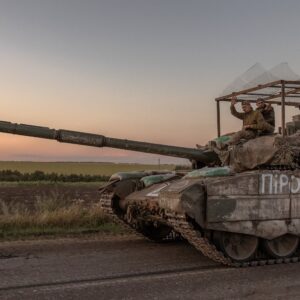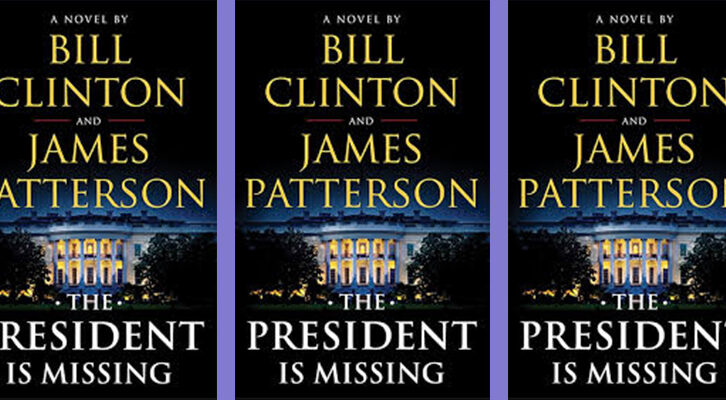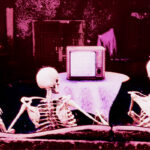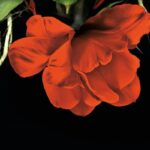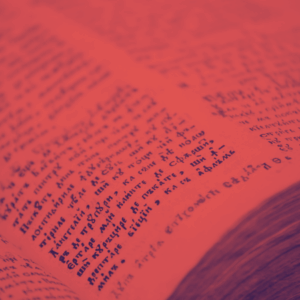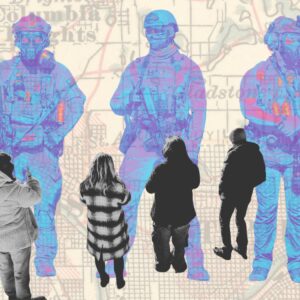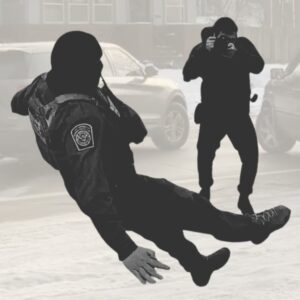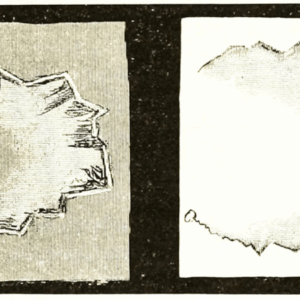
In Search of the Darkest Cult in American History
Laura Elizabeth Woollett on Jim Jones and the Peoples Temple
Before Jonestown there was Redwood Valley, where the charismatic Jim Jones would commune with his loyal flock.
This is the place, I think, looking out the Greyhound window at the hills and valleys and late afternoon light that’s too beautiful not to look at.
I’m in northern California, wine country, Peoples Temple country, but even if I hadn’t been researching Peoples Temple for the past year, this would be the place; it’s everyone’s kind of place. Across the aisle, a guy my age is talking on his phone, saying, “Almost in Ukiah,” and “Fucking beautiful.” Another guy is filming. My heart keeps doing freaky, flippy things. If there’s anywhere that could make me believe in heaven on earth, it’s here.
I’m the only female on the bus and the only soul to get off in Ukiah. The Greyhound station is just a bench outside an airfield on a road where no one is walking. This is what scares me most about America and traveling alone in general—the wide stretches of road without pedestrians.
I ask the driver if this is the road where my motel is and he says yes, asks if I want to be driven the extra mile, says it’s probably a nice walk. I’ve been on my arse all day. I thank him and watch the Greyhound pull away.
Greyhounds always make me think of Peoples Temple—they’re the fleet of buses Reverend Jim Jones acquired for transporting his loyal Redwood Valley flock to services in other cities. Then again, everything makes me think of Peoples Temple. This trip is about indulging that, total immersion. I am a very long way from home.
A woman shouts something abrasive at me from a car—“Slut!” or maybe “Cunt!” Otherwise, the walk is peaceful. I perk up when I see the Quality Inn sign, because my bags are heavy and my shirt is sour with sweat.
The receptionist seems pleased to see another person, gives me a map and the details of a bike place that won’t open until Monday, keys to a room big enough to sleep four people, or maybe eight if this was a Peoples Temple commune. Outside, there’s an ice dispenser, a vending machine full of American soda, a vast parking lot, and a scummy swimming pool. I feel like I’m in a Lana Del Rey song.
* * * *
My first morning in Ukiah, the weather is warm so I wear a dress. I wear my hair loose. I wear lipstick.
It takes maybe half an hour to walk from my motel into town, and in that time I am catcalled, offered a lift in a pick-up and accosted by a guy who wants to know how old I am, if I have a boyfriend, where my boyfriend is.
“Home,” I say, not mentioning that “home” is a 14-hour flight across the Pacific Ocean. I’m a city girl, accustomed to the anonymity of crowded footpaths and am unnerved to be so conspicuous here.
But the hills are still golden and lovely, and the street names seem like allusions: Jones, Church, Redwood.
I buy a bag of cherries. I go to the library. The librarian is unimpressed when I tell him I’m researching Peoples Temple, but shows me how to scour the local-news archives.
At the computer, I eat cherries and marvel over how it all escalates: from innocent ads for church services to stories of Jones’s local heroics to scandal to jungle exodus to mass suicide, Kool-Aid, conspiracy. I try to imagine reading these things in the context of the 1960s and 1970s.
As I’m reading, a woman with bad teeth gets caught stealing toilet rolls and is banished from the library forever. A middle-aged stoner comes up to me and asks what I’m reading. I show him Jim Jones.
“Oh, Jim Jones. He was charismatic.”
“Yeah.”
“I wish I was charismatic.”
“Ha ha… yeah.”
He wants to know if I’m in high school or college, what year I was born in, what month, what day, what hour. He wants to know if I’ve heard of Vedanta, an Indian philosophy; he wants to calculate my Vedanta horoscope. I let him, then declare it inaccurate: I’m not an earth mother, I don’t have recurring dreams, people don’t come crying to me with their problems.
The stoner-astrologer looks disappointed in me and says, “You must’ve lied about your birth hour. This stuff is normally really accurate.”
* * * *
The day I’m to rent a bike and go to those hills and valleys I’ve been dreaming of, I try to make myself less feminine. I wear shorts, a loose shirt, no make-up. I use a thousand or so bobby pins to put my hair in a bun and think of Jim Jones’s mistresses, how they wore their hair like this.
At Dave’s Bike Shop, “Dave’ fits me for a helmet and says I’m going to have to get rid of all those pins, they’re in the way. Dave is unfazed by my accent, my desire to ride to the old Peoples Temple building in Redwood Valley, tells me it’s ten miles north, shows me on a map, lets me keep the map, gives me a card with his number, worries about my impractical shoes.
I like Dave. I would maybe marry Dave and live with him in this place of cherry trees and evergreens, if he asked.
Getting out of Ukiah involves riding alongside highway traffic past a lumberyard, but after a while things start resembling the photographs from the 1970s. The roads curve and are lined with greenery and wealthy hippie houses with wind chimes and rainbow pinwheels. I’m curious how many have marijuana crops.
When I see a sign pointing the way to Lake Mendocino, where Jim Jones was known to picnic, I wish like hell I’d packed a bikini and some food and was brave enough to deviate from Dave’s suggested path. But I don’t.
I know I’m close to Peoples Temple when I get onto East Road and start seeing vineyards. My heart feels like a water balloon. I pass a sign that says “JESUS IS THE ANSWER” and wonder if it’s meant ironically—how anyone can be unironic about Jesus so close to the place where a black-haired man in sunglasses claimed to be his reincarnation?
Though I can’t remember the exact address of the building, I’ve zoomed in enough on Google Maps to know it’s still used as a church, is still low and brown-roofed and ugly in that rectangular 1960s way.
When it finally appears ahead, I want to laugh for joy. It’s taken months of planning and research to get me to the place where it all began, and it feels like both the start and the end of a long, wild ride. Before Guyana, before Jonestown and cyanide-laced Kool-Aid, this was the place where hundreds flocked every weekend to hear sermons on racial equality, to be healed of cancer or blindness, to sing protest songs and old-time gospel. This is the place.
The doors to what is now the “Assembly of God: Redwood Valley” are locked. I don’t really mind. I ride in circles taking photos, examine the cracked asphalt behind the church and wonder if it’s where all those Greyhound buses used to be parked.
At the far end of the parking lot is a row of pines and a tall fence, a property behind the fence that could be the old Jones house, and a shimmering body of water that may be a cow pond or a creek or a mirage.
I wheel back to the Assembly of God lawn, lay my bike down, sprawl beside it. I glug water. Then, since I’m a millennial and alone with a camera, I do the thing that seems most natural and take a bunch of selfies.
* * * *
My bus to San Francisco is meant to come at 1pm the next day. The ticket advises earliness, so I get to the station at midday. It’s 4:30 before the bus arrives. I am not a happy customer.
Only one other person is waiting for the bus, a youngish black guy. I ignore him for the first two hours, in case he’s weird. Around the 2:30 mark, I roll my eyes at him in sympathetic frustration. Around 3pm, I sit near him and complain about the stupid bus.
“Yeah, it’s stupid,” he agrees, then tells me his name is Robert and that he has been here for six hours, was dropped off by a friend in the morning, is on his way home to South Dakota with an eight-hour layover in Frisco, has nothing but time to kill.
We get to talking. About our families mostly, the places we’ve been and the lives we’ve led so far. There are obvious imbalances: he’s 34 with three kids to support, had his heart broken by their mother, has been working with timber and sending home his pay cheques, has never been on an airplane; I’m 25 with no one to think of but myself, have never had my heart broken, work with words, have probably flown at least 50 times. I’ve been to more major American cities than he has, but we both have things to say about New Orleans and he tells me a cool story about his Louisiana grandma who survived being snakebit.
He asks me if there are black people in Australia and, after learning I was staying at the Quality Inn up the road, why the hell I’d want to sleep alone in a motel in Ukiah when I have a boyfriend back home. I guess it’s a pretty good question.
The bus still doesn’t come. I seriously consider going back to the motel, or paying whatever I have to pay to get a cab somewhere more civilized. Robert asks me to look after his bag and shuffles off to the gas station across the road.
He’s gone a couple of minutes when the thing I’ve been wanting to see for hours comes glittering on the horizon, and I think, Oh no! But luckily my bus friend is back with a bottle of soda and hasn’t even broken a sweat, and we board the Greyhound without exchanging another word. By the time we get to Frisco the sky is as black as Jim Jones’s hair.
In San Francisco, my solitude takes on rhythms. I soon learned the quickest way to get from my Hayes Valley apartment to the CHS library, where the Peoples Temple archives are, is to walk through the Tenderloin.
People in the Tenderloin are sometimes drunk or high at eleven in the morning, sometimes sprawled corpse-like on the pavement, sometimes lining up, sometimes drinking from paper cups. Sometimes people stumble into my path and sometimes there are smells and wet patches I don’t want to interrogate, but it’s daytime and no one hassles me.
It’s hard not to think of this city in the 1970s, that these were the people who Peoples Temple tried to help, that it all went horribly wrong and still hasn’t been made right.
Hours disappear in the archives, but they’re only accessible three days a week, and I’m in town for a month. On my days off I walk, sometimes five or six hours, or sit in parks or the library or by the sea. I learn that I like Whole Foods, Walgreens, diners with endless soda refills, but also that these places charge more than I expect, and that sometimes it’s hard to stick to my $20-a-day budget. I watch the series finale of Mad Men and can’t get ‘I’d Like to Buy the World a Coke’ out of my head, prancing around my tiny apartment singing:
I’d like to buy the world a home and furnish it with love!
Apple trees and honeybees and snow white turtledoves!
I have no friends, and don’t try especially hard to make any, but a couple of times a week I meet people who were young in the 1960s and 1970s and have interesting conversations. I meet these people mostly across the Bay, get picked up in their cars, go to cafés or their houses, am treated very kindly and rarely allowed to pay for anything. We talk about Peoples Temple in a way that makes it immediate.
One man walks me through what would have happened to a girl like me, showing an interest in the Temple in the 1970s: how I would have been visited in an apparently casual manner by apparently lovely people; my cabinets and trash sneaked through; notes taken; invitations issued; revelations made by the great Jim Jones himself on the basis of those notes; people gasping and falling over and making a great big fuss.
He asks if this sounds impressive and I say, “Yeah!” He proceeds to tell me that, while all this was going on, Jim Jones would of course have been checking me out through his sunglasses to see if he wanted to fuck me, and that this would have been arranged over the coming months through a combination of flattery, extra responsibilities, guilt trips, isolation from family, and personal attention from the very charismatic leader.
Other things less directly related to Peoples Temple are spoken about. In his vast home library, a gentleman talks to me about Eastern religions, his passion for studying religion, and difficulty believing in anything beyond this life after Peoples Temple.
Another echoes this sentiment, tells me, “Life in the Temple was life in technicolor. Nothing else compares.” But he’s a got a sense of fun and beauty, drives me through Berkeley and Oakland, up into the hills to look at views, past the cemetery where the Jonestown memorial is.
He takes me to his house and we eat shortbread and drink berry tea and smoke some weed and, technicolor or not, these people still know how to make a fellow traveler welcome.
Original illustration by Guy Shield.
This essay first appeared in Kill Your Darlings Issue 24, on-sale now.
Laura Elizabeth Woollett
Laura Elizabeth Woollett’s debut short-fiction collection, The Love of a Bad Man, will be published in 2016. She is currently at work on a novel, Beautiful Revolutionary, about a young counterculture couple who join Peoples Temple in late 1960s California.









